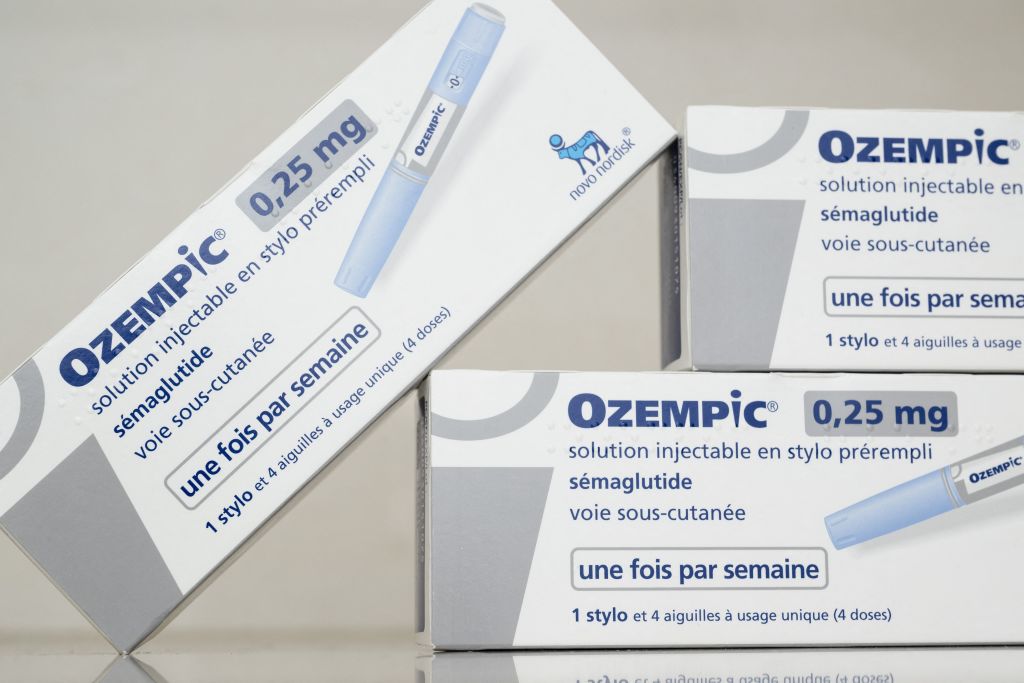Cybersecurity company BrandShield has successfully taken down more than 250 websites selling counterfeit weight loss and diabetes medications in a joint effort to combat the proliferation of counterfeit medicines online.
According to Reuters, BrandShield CEO Yoav Keren said that the majority of these illegal websites are counterfeit drugs belonging to the GLP-1 class, a group of drugs primarily used to treat metabolic diseases. It was revealed that the company was a supplier of pharmaceuticals.
Cybersecurity firm shuts down websites selling fake Ozempic and Wegovy
GLP-1 drugs targeted by these counterfeiters include Novo Nordisk's Ozempic and Wegovy, and Eli Lilly's Mounjaro and Zepbound.
These drugs were originally developed for the management of type 2 diabetes, but have gained popularity for their additional benefits in weight loss, with patients experiencing an average weight loss of up to 20%. This effectiveness has led to a surge in demand, creating a lucrative market for counterfeit versions of these drugs.
BrandShield's initiative comes amid growing concerns about the prevalence of counterfeit medicines, with incidents related to counterfeit GLP-1 drugs reported in at least nine countries, including Belgium, the UK, Switzerland and the US. Alarmingly, studies show that an estimated 95% of all online pharmacies operate illegally.
The scale of the operation was staggering, with the cybersecurity firm shutting down 90% of the 279 pharmacy websites identified for selling counterfeit GLP-1 drugs.
Additionally, the removals account for just over 15% of the 1,655 websites BrandShield reported last year for selling counterfeit drugs across a variety of categories, including hormone-related drugs, central nervous system drugs, and cancer drugs. corresponds to
Also read: Boost your online security: Here's why you should install an ad blocker now
(Photo: Sebastian Bozon/AFP via Getty Images)
This photo taken on October 23, 2023 shows a box of Ozempic medicines, an injectable anti-diabetic drug, in a pharmacy in Riediheim, eastern France.
Fighting online pharmaceutical fraud
BrandShield, in collaboration with the Pharmaceutical Security Institute (PSI), has been at the forefront of the fight against online pharmaceutical fraud. Through rigorous evidence collection, the company provides actionable information to service providers hosting these illegal websites, leading to their removal from the internet.
Additionally, BrandShield works with law enforcement agencies to assist in the investigation and prosecution of criminal networks involved in the manufacture and distribution of counterfeit pharmaceutical products.
As part of our comprehensive efforts to protect consumers, BrandShield also targets illegal drug listings on social media platforms, removing nearly 4,000 fake drug listings in the last year alone.
A significant portion of this (almost 60%) was found on Facebook. The company's vigilance has spread across the world, eradicating illegal drugs from markets in India, Indonesia, China and Brazil.
Weight loss drugs have no link to suicidal thoughts
In related news, the European Medicines Agency (EMA) recently concluded an investigation into the safety of GLP-1 drugs such as Novo Nordisk's Wigovy and Ozempic. Contrary to concerns raised previously, the EMA found no evidence that these drugs were associated with an increased risk of suicidal ideation or self-harm.
This reaffirmation of safety follows previous research by the U.S. Food and Drug Administration (FDA), which acknowledged the need for continued monitoring but did not establish a definitive link between GLP-1 and suicide. is consistent with
Stay up to date with Tech Times.
Related article: Facebook's news content blocking hurts political discourse, new study claims
ⓒ 2024 TECHTIMES.com All rights reserved. Please do not reproduce without permission.


